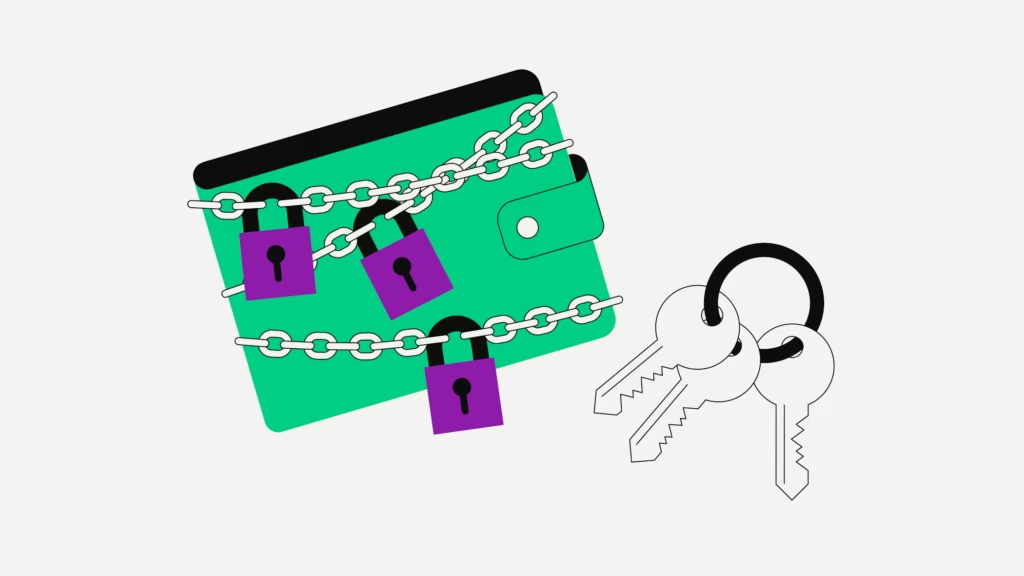What Are Multi-Signature Wallets?
Multi-signature wallets, often referred to as “multi-sig” wallets, are a special type of cryptocurrency wallet that adds an extra layer of protection by requiring more than one person to approve a transaction before it goes through.
These wallets are especially helpful when a digital asset is shared by multiple individuals or is being managed by a company or organization.
Unlike regular wallets that need just one digital signature to approve a transaction, multi-signature wallets are more complex. They demand multiple approvals, making them harder to use but far more secure. Because of this, they are perfect for situations where higher security is a priority.
Key Points to Remember
- Multi-signature wallets need approval from two or more people to complete a transaction.
- They offer stronger security for cryptocurrency and digital assets but may be more complicated to set up and use.
- These wallets help prevent theft, as one password or key alone cannot complete a transaction.
- While they’re ideal for businesses or shared crypto ownership, most individual users may not need them.
How Multi-Signature Wallets Work
To understand multi-signature wallets better, it helps to first look at how a standard wallet functions. When someone sends cryptocurrency through a blockchain, a digital signature confirms that the sender has enough crypto and the private key needed to make the transfer. In regular wallets, only the person sending the transaction needs to sign.
With multi-signature wallets, several people must sign the transaction. A special wallet address is created, and it requires a certain number of signatures from a group to approve any outgoing funds.
For instance, if there are three people in the group, the system can be set up so that at least two out of three people must sign the transaction for it to proceed. The blockchain automatically combines these signatures into one, allowing the transaction to go through.
In short, multi-sig wallets are software tools that can send and receive crypto transactions but only when multiple users have confirmed them. This provides better protection and helps maintain the security and trustworthiness of the blockchain process.
Quick Fact
You can set multi-signature wallets to require as many signers as needed, but most use a system where just a majority of signers must approve.
Multi-Signature Wallets vs. Traditional Wallets
Traditional cryptocurrency wallets are simpler. They use one public address to receive assets and one private key to access or send them. In these wallets, if you know the private key (or password), you can do anything with the funds inside.
In contrast, a multi-signature wallet divides access among multiple people. For example, two people might each have to unlock their separate wallets to gain access to a shared wallet. This shared wallet then requires their combined approval before any funds can be moved.
The most secure versions of multi-sig wallets might even require physical hardware devices. Each person would hold a device that stores part of the private key or a special access code. Only by using multiple devices together can the main wallet be unlocked.
Why Use Multi-Signature Wallets?
You might have seen in movies where two military officers have to turn keys at the same time to launch a missile. The concept of a multi-signature wallet is similar—it’s designed to prevent one person from having full control over powerful tools or valuable assets.
If you’re placing your crypto with a company, exchange, or investment platform, you don’t want one person to have the power to misuse or steal your funds.
Multi-sig wallets help by ensuring that at least two or more trusted people must approve any withdrawal. This system helps protect against misuse, fraud, or human error.
For individuals, however, multi-signature wallets may not always be necessary. Unless you’re jointly managing digital assets with someone else and have reason to be cautious, a standard single-signature wallet may be enough for your needs.
Examples of Multi-Signature Wallets
There are several wallets that support multi-sig features. Some examples include:
- Electrum – A popular and widely trusted Bitcoin wallet that allows multi-sig setups.
- Arbitrum – Known for its scalability and support for secure wallet functions.
- Guarda – A user-friendly wallet that offers multi-sig among other features.
While there are many other options, it’s important to be cautious and do your research. Not all wallets are safe—some can be designed with harmful code or backdoors by attackers.
Can Multi-Signature Wallets Be Hacked?
Yes, they can. Like all crypto wallets, multi-signature wallets are software programs that interact with blockchain networks. Any program can be altered or attacked.
Even though multi-sig wallets are more secure because they require multiple approvals, the software itself or the devices being used can still be vulnerable.
Are Multi-Signature Wallets More Secure?
They definitely provide better protection than single-signature wallets. Since more than one person must approve a transaction, it becomes much harder for hackers or bad actors to steal funds.
Still, these wallets rely on software and devices, which can be hacked or compromised. While multi-sig wallets boost security, they are not completely foolproof.
Final Thoughts
Multi-signature wallets are advanced crypto wallets that demand multiple approvals for sending out funds. They are designed to add a layer of security, making it much harder for a single person to misuse or steal digital assets.
While they are best suited for businesses or groups managing shared funds, some individuals might also find them useful if they want to share control or increase protection.
Just like with any crypto tool, users should research thoroughly and follow strong security practices when using multi-sig wallets.
Join Gen Z New WhatsApp Channel To Stay Updated On time
https://whatsapp.com/channel/0029VaWT5gSGufImU8R0DO30


